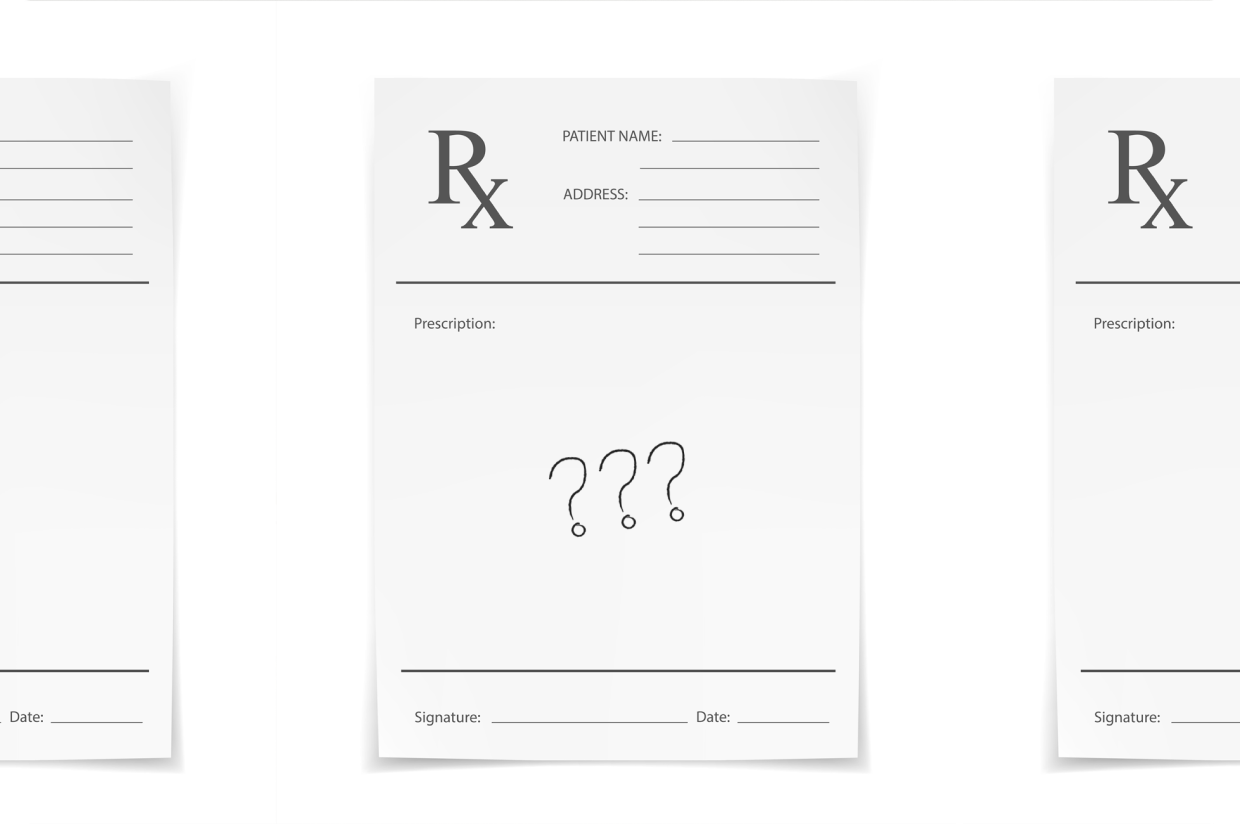For those that are living with frequent or ongoing symptoms of acid reflux, finding the best method to treat your acid reflux is essential to maintaining your daily quality of life, as well as your long-term health.
The team at Felix has put this information together to help if you’ve been wondering what process is for diagnosing acid reflux, or the types of acid reflux treatments available.
If you’ve already been making lifestyle changes, but you’re finding that it’s not helping your acid reflux symptoms, complete a short assessment to talk to a practitioner today about what other acid reflux treatments may benefit you.
How Is Acid Reflux Diagnosed?
The diagnosis of both acid reflux or Gastroesophageal Reflux Disease (GERD) can often be based on your symptoms (i.e., heartburn and/or regurgitation), since these conditions have common, recognizable signs of presentation.
SIDE NOTE: It’s important to note that acid reflux is extremely common, and it happens to everyone once in a while; usually 2-3 hours after a meal. It can be more likely to present after particularly large meals.

How Is Acid Reflux Treated?
Before you talk to a practitioner, if you’re wondering how to treat acid reflux, the first treatment you should try is making lifestyle adjustments, which help reduce potential causes of your acid reflux.
These lifestyle adjustments could include things like:
- Losing weight (for people who are overweight or living with obesity)
- Quitting smoking
- Avoiding trigger foods (i.e., fatty foods, chocolate, peppermint, alcohol, etc.)
- Sleeping on your left side
- Lifting the head of your bed 6-8 inches (not just sleeping with more pillows)
Although they aren’t as proven, it’s also believed that not eating meals right before bedtime and wearing loose, comfortable clothing may also reduce your symptoms. The safest acid reflux remedy is not medication. However, this method of treatment doesn’t always work.
If you’re already trying these natural acid reflux remedies, and they aren’t helping to manage your symptoms enough, talk to a practitioner about alternative acid reflux treatments and get started with Felix today.
Can Acid Reflux Lead to Something More Severe?
Frequent or severe acid reflux can eventually become Gastroesophageal Reflux Disease (GERD), which is the chronic form of acid reflux.
Left untreated, this can also lead to esophageal complications, such as:
Erosive Esophagitis
This condition occurs when an excessive amount of acid and pepsin makes its way back up into the esophagus, causing necrosis of the surface levels of your esophageal mucosa. In turn, this results in erosions and ulcers.
The diagnosis and management of erosive esophagitis are discussed separately. It’s important to note that some people with this condition can be asymptomatic, or they may experience heartburn, regurgitation, dysphagia (difficulty swallowing), and/or odynophagia (pain when swallowing).
Barrett’s Esophagus
Barrett’s Esophagus is another name for the replacement of the distal lining of your esophagus (the stratified squamous epithelium), with metaplastic columnar epithelium, as a consequence of chronic GERD.
When this occurs, it can increase your risk of developing esophageal cancer.
Most people who experience this condition are initially seen for symptoms associated with acid reflux and GERD (i.e., heartburn, regurgitation, etc.). However, the specialized intestinal columnar metaplasia that’s typical of Barrett’s Esophagus causes no symptoms itself.
Over long periods of time, untreated Barrett’s Esophagus may lead to esophageal ulcerations, strictures, and/or hemorrhages.
Esophageal Strictures
When your body is healing from ulcerative esophagitis, it can sometimes lead to peptic strictures. These are the result of collagen that’s being deposited during the healing phase, and with time, these fibers can contract, narrowing the esophageal lumen.
These strictures are usually short in length and connect with the gastroesophageal junction. where the LES allows access to/from the stomach. In some cases, this can lead to solid food getting stuck in the esophagus, or result in difficulty/painful swallowing while eating.
Managing benign strictures involves dilating them, alongside acid-suppressive therapy (i.e., PPIs), to prevent the strictures from reforming once they’ve been dilated.
What Medication Is Available to Treat Acid Reflux?
When lifestyle adjustments (i.e., dietary changes, quitting smoking, avoiding trigger foods, etc.), isn’t helping enough, your practitioner may suggest acid reflux medicine as a remedy.
For mild symptoms, antacids, alginates, and/or histamine receptor antagonists are usually recommended, while Proton Pump Inhibitors (PPIs) are sometimes suggested for people with moderate-to-severe symptoms.
The goal with acid reflux medicine (especially PPIs), is to seek the greatest level of acid reflux symptom relief, using the lowest possible dosage, and over the shortest possible period of time.
Interested in talking to a practitioner about whether acid reflux medications may be the right treatment option for you? Complete a short assessment and a practitioner will evaluate whether these acid reflux treatments are right for you, based on your health, medical history, and ongoing symptoms.

How Does Medication for Acid Reflux Work?
All of the different types of treatments involving acid reflux medications work by either reducing or blocking stomach acid from being produced.
However, they all function in their own unique ways, using different methods to achieve similar end results.
The most important thing to understand is that these medications can reduce the strength and/or volume of your stomach acid, making it less likely that you’ll experience acid reflux.
How Long Does it Take for Acid Reflux Treatments to Work?
For those asking, “how long does acid reflux medicine take to work?” This really depends on the type of acid reflux treatment you’re using.
For antacids and histamine receptor antagonists, you may get virtually immediate benefits. In fact, these types of acid reflux medicine start to work as soon as you take them.
On the other hand, Proton Pump Inhibitors (PPIs) require a few days of routine use, before they’ll start to provide noticeable relief.
When Is the Best Time to Take Acid Reflux Medication?
If you’ve been wondering, “can I take acid reflux medicine at night?”. The answer is yes. As long as you’re using antacids or histamine receptor antagonists.
These types of acid reflux remedies can be taken as needed, including before bed or overnight.
Conversely, PPIs should be taken 30-60 minutes before you eat your breakfast in the morning. This allows for the maximum inhibition of proton pumps.

How to Treat Acid Reflux Without Medication:
As we’ve mentioned, sometimes the best and safest acid reflux medication is not using medications at all.
Lifestyle changes can make an enormous difference in the regularity and severity of your acid reflux symptoms, so it’s always a good idea to start your treatment plan there, before requesting a medical intervention.
Meal plan to help avoid trigger foods. Adjust your bed to raise the head 6-8 inches higher, which puts your shoulders, neck, and head above your stomach. Sleep on your left side, so that it’s harder for acid/food to reenter the esophagus. Quit smoking. Cut down or cut out alcohol.
There are even some acid reflux remedies that haven’t been proven in studies, but are known to help reduce symptoms, such as not eating meals before bed or wearing loose, comfortable clothing that doesn’t restrict your abdomen or chest.
Not only can this help reduce symptoms, but even if these methods of treatment don’t work, they’ll be able to give your practitioner an idea of the things that you’ve already tried, which aren’t working.
In turn, this can make it easier for them to help you find the most effective treatment plan, based on your individual needs.
When Should I Talk to My Practitioner About Acid Reflux?
If you’ve been trying lifestyle adjustments for a while, but you’re not noticing an improvement in your acid reflux or GERD symptoms, it’s time to talk to a practitioner about other acid reflux treatments that may help.
Start by completing a short online assessment, at your convenience, so that your practitioner can gauge your health, medical history, as well as the severity of your symptoms. From there, they’ll be able to make suggestions that are catered directly to your needs.
With Felix in your corner, you can take back control of your health and quality of life, so that you can get back to living life on your terms – the way it should be.

